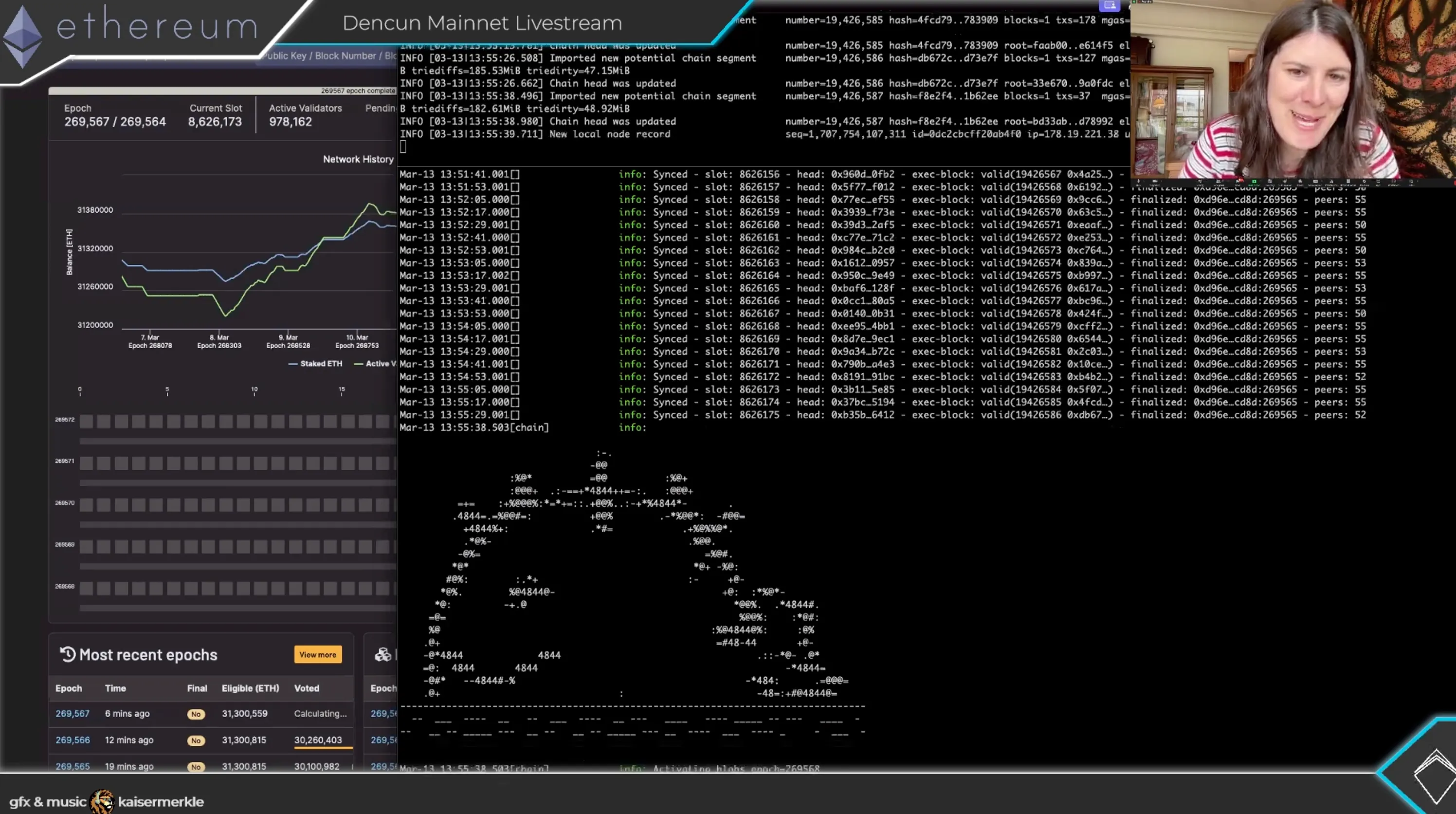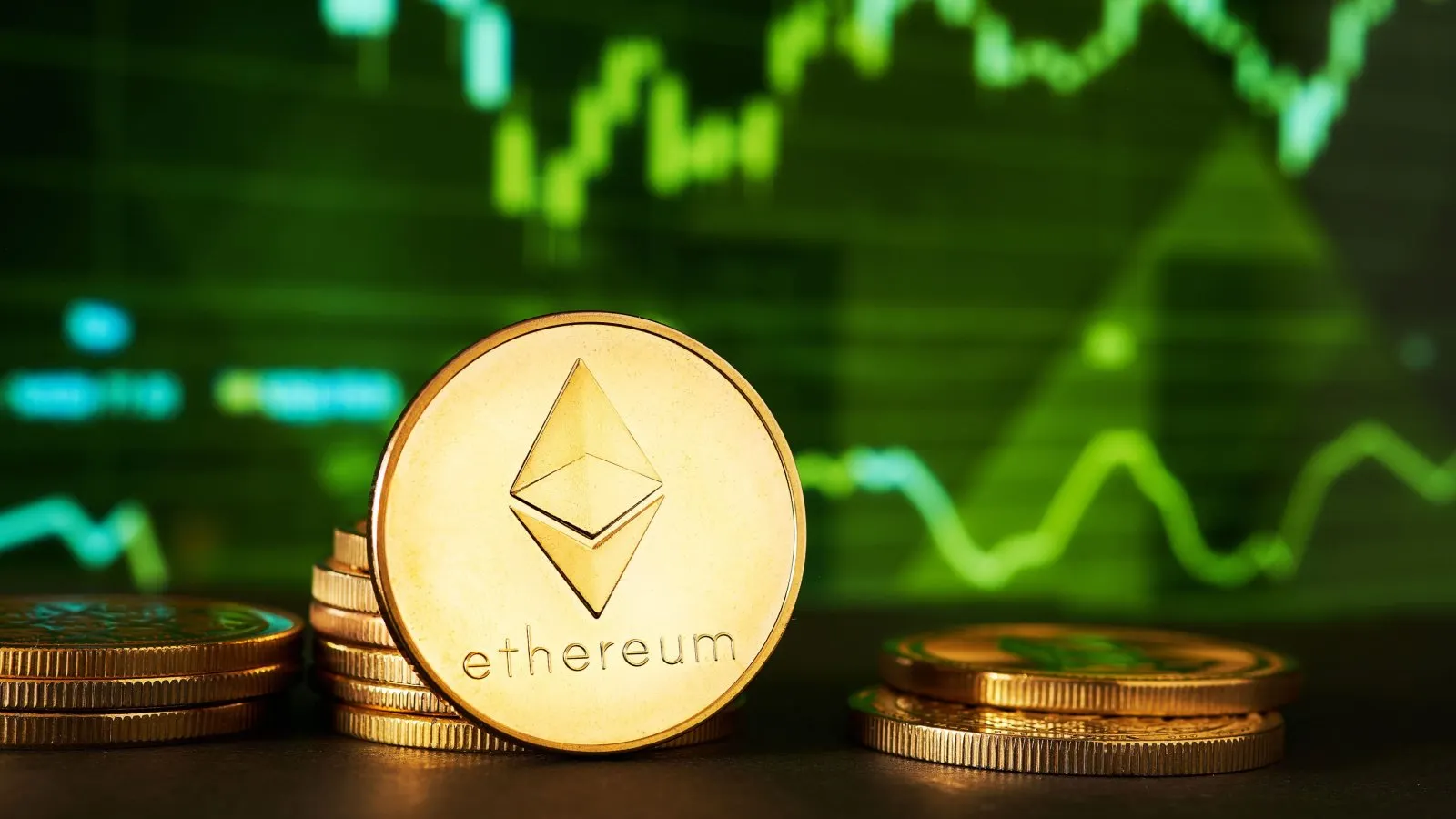Ethereum’s much-anticipated Dencun upgrade went live Wednesday morning without a hitch, ushering in a new chapter for the blockchain that is poised to substantially lower transaction costs across Ethereum layer-2 networks and massively expand the blockchain ecosystem’s capabilities.
Just before 10 a.m. EST, the Dencun upgrade was successfully implemented. It will now take a period of about a month or two for settlement contracts across all layer-2 networks to incorporate the update. Once they do, gas fees on layer-2 networks should immediately fall by 75%, Terence Tsao, a developer of Ethereum layer-2 network Arbitrum, previously told Decrypt.

Leading up to the hard fork, Ethereum developers held a livestream on YouTube to discuss the different Ethereum Improvement Proposals that would be rolling out as Dencun went live and explain some of the new terminology, like blobs—which are a new way to organize and send data on the network.
As the upgrade went live, ASCII art of a blob appeared on the screen.
Ethereum has undergone multiple flashy upgrades in recent years, including the 2022 merge, which transitioned the network to an energy-efficient proof-of-stake model, and 2023’s Shanghai upgrade, which unlocked tens of billions of dollars worth of ETH staked with the network for withdrawal. But several developers who help build Ethereum believe that Dencun is poised to change the network to a degree never before seen.
“I think that this upgrade will have the biggest effect for users of all the Ethereum upgrades yet,” Marius Van Der Wijden, an Ethereum core developer, told Decrypt. “Dencun is a much bigger update than Shanghai.”
Not only will Dencun drastically cut transaction costs on layer-2 networks; it will also, by doing so, redefine the Ethereum ecosystem’s capacity to process massive swathes of transactions, and thus lower barriers significantly for moving projects, transactions, and data on-chain.
David Silverman, VP of Product at Polygon Labs, previously analogized to Decrypt that Dencun will single-handedly expand Ethereum from a country backroad into a four-lane highway, in terms of the efficiency and ease with which the ecosystem will soon be able to process unprecedented amounts of on-chain traffic.
Gas costs might drop so low following Dencun that they will be covered by crypto companies and projects going forward—essentially making such fees a thing of the past, Silverman added.
Such an unprecedented shift in the economics of Ethereum would come at a time when gas fees on the network's mainnet have recently spiked to near-unusable highs. That fact isn't lost on Dencun's developers.
"We are focused on scaling and reducing fees in L2 at a time when Ethereum's usage is reaching high volumes again and gas fees are a noticeable cost to most users," Ethereum core developer Preston Van Loon told Decrypt.
Key to Dencun's near-elimination of gas fees is proto-danksharding, a novel method for data storage on Ethereum introduced by Dencun. Proto-danksharding, which utilizes features called “blobs,” will allow layer-2 data to be stored on-chain temporarily for a period of about a month. Until now, data could only be stored on Ethereum forever, an immensely expensive option that greatly limited what data was uploaded on-chain.
Developers hope that Dencun will usher in a new chapter for Ethereum, one in which there are essentially no limits—related to cost, storage, or anything else—on the amount of data that can exist on-chain. Such a landscape could revolutionize the types of projects and tools built across the Ethereum ecosystem.
“I hope Dencun will unlock new use cases that were not possible before,” Ethereum’s Van Der Wijden said. “We’re not building this for short-term unsustainable gains, but for long-term sustainable growth.”

